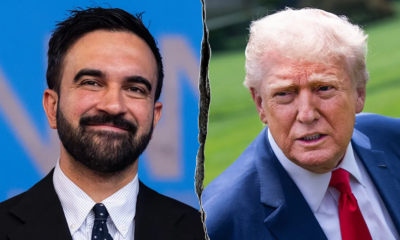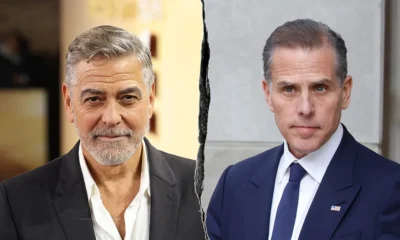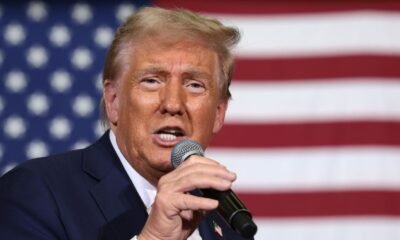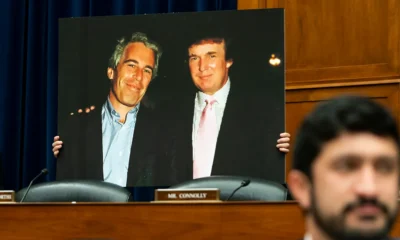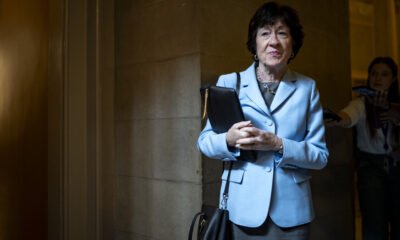Politics
Crypto Crusader Lee Jae Myung Elected President as South Korea Embraces a New Future
With a bold crypto-first vision, economic reforms, and democratic revival, Lee Jae-myung wins South Korea’s presidency after an election that captured global attention.
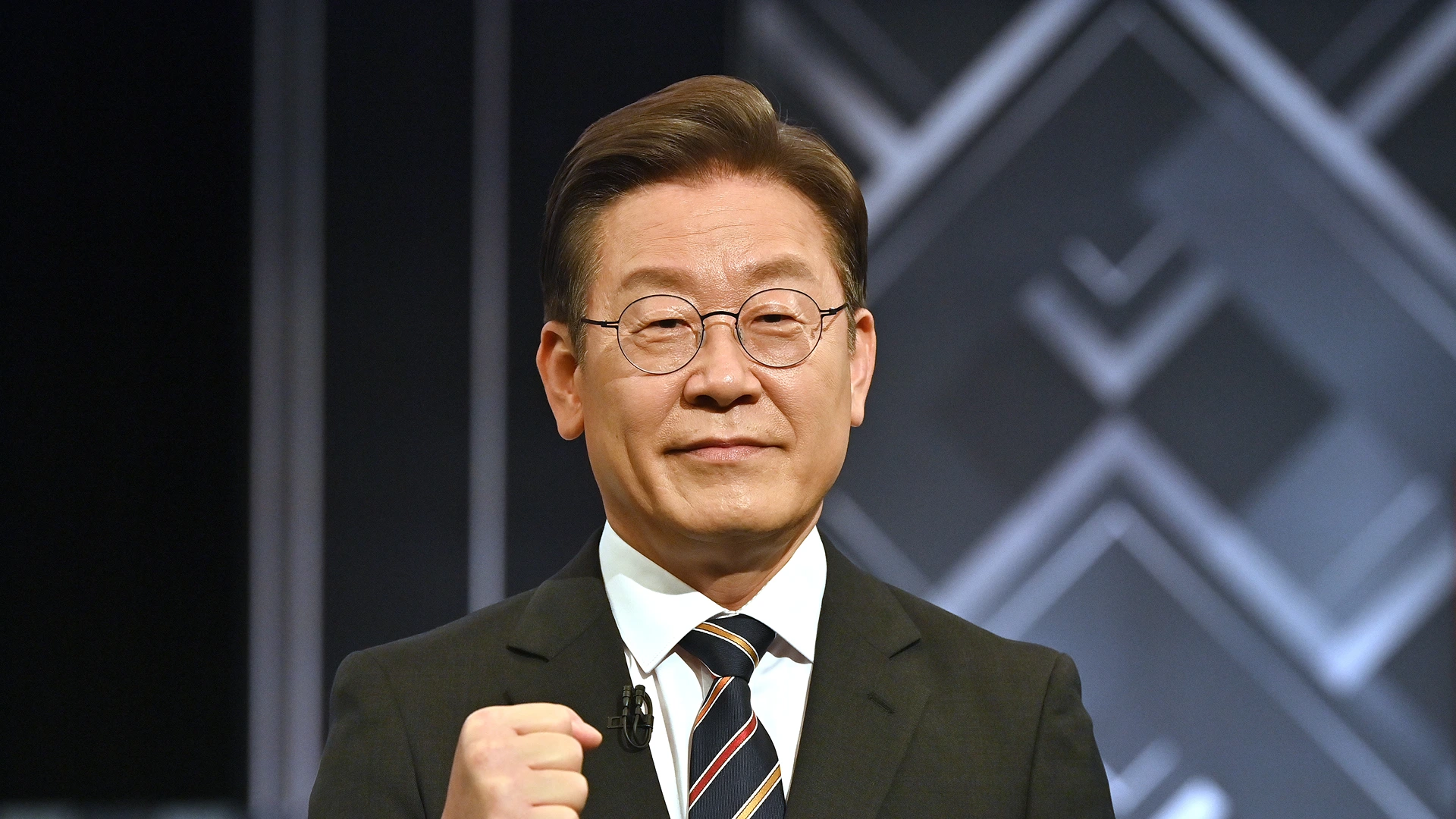
In a historic turn of events that could redefine South Korea’s economic and political landscape, Lee Jae-myung has been officially sworn in as the new President of South Korea following a snap election that saw the highest voter turnout since 1997. Known for his liberal stance and pro-innovation policies, Lee’s victory signals a dramatic pivot not just from the chaos of martial law but toward a futuristic vision led by cryptocurrency, green energy, and economic deregulation.
The center-left Democratic Party leader clinched over 49% of the nearly 35 million votes cast, beating conservative rival Kim Moon-soo who garnered just above 41%. The swift fall of former President Yoon Suk-yeol—ousted amid public fury over a failed martial law declaration—opened the door for Lee’s resurgence as a stabilizing yet progressive force. His immediate assumption of command underscores the urgency of South Korea’s challenges—from inflation and U.S. tariffs to global tech competition.
But what’s captivating both local and international observers is Lee’s ambitious crypto agenda. The newly elected president has vowed to allow the country’s $884 billion national pension fund to invest in Bitcoin and other cryptocurrencies. He also supports approving Bitcoin exchange-traded funds (ETFs) and developing a Korean won-backed stablecoin—a move he claims will “prevent national wealth from leaking overseas.” This strategy places South Korea at the forefront of digital finance in Asia, possibly even globally, should these promises materialize.
According to Satoshi Action Fund founder Dennis Porter, who witnessed the elections firsthand, the pro-crypto wave was undeniable. “The turnout was wild,” Porter remarked, emphasizing the importance of Lee’s commitments to crypto in shaping voter enthusiasm. Following Lee’s win, Bitcoin briefly spiked to over 149,000 won on local exchanges, showcasing the “kimchi premium” and investor optimism toward a deregulated financial future.
However, Lee’s vision stretches far beyond blockchain. He has made it clear that economic recovery, social reform, and diplomatic tact are central to his presidency. He pledged to depoliticize the prosecution system, push for a four-and-a-half-day work week, invest heavily in AI and defense, and maintain peace with North Korea through dialogue rather than confrontation. “It is better to win without fighting,” he said in his inaugural speech, emphasizing diplomacy over force.
Despite his conciliatory tone, Lee inherits a volatile external environment. He must negotiate harsh U.S. tariffs that have weighed down South Korea’s export-driven economy. The White House has already hinted at its eagerness to strike a fair deal while voicing concerns over Chinese influence in democratic nations. Lee has maintained that while China remains a vital trade partner, the U.S.-South Korea alliance will remain the backbone of the nation’s foreign policy.
Markets responded favorably to Lee’s win, with South Korea’s KOSPI index jumping over 2%, marking a ten-month high. Financial and renewable energy stocks led the rally, a strong indication that investors are betting on Lee’s reformist and tech-forward economic agenda.
In a bid to stabilize the political structure, Lee has nominated seasoned lawmaker Kim Min-seok asKim Min-seok—a name already known for forecasting the fall of the previous regime. Together, they represent a government with a clear goal: revive democracy, reboot the economy, and reimagine the nation’s future—all while placing crypto and innovation at its core.
Politics
“Egg on Their Face”: DOJ’s Failed Trump Revenge Prosecutions Trigger Legal Embarrassment
From dismissed indictments to grand jury rejections, the Justice Department’s attempts to prosecute Trump critics have unraveled in dramatic fashion
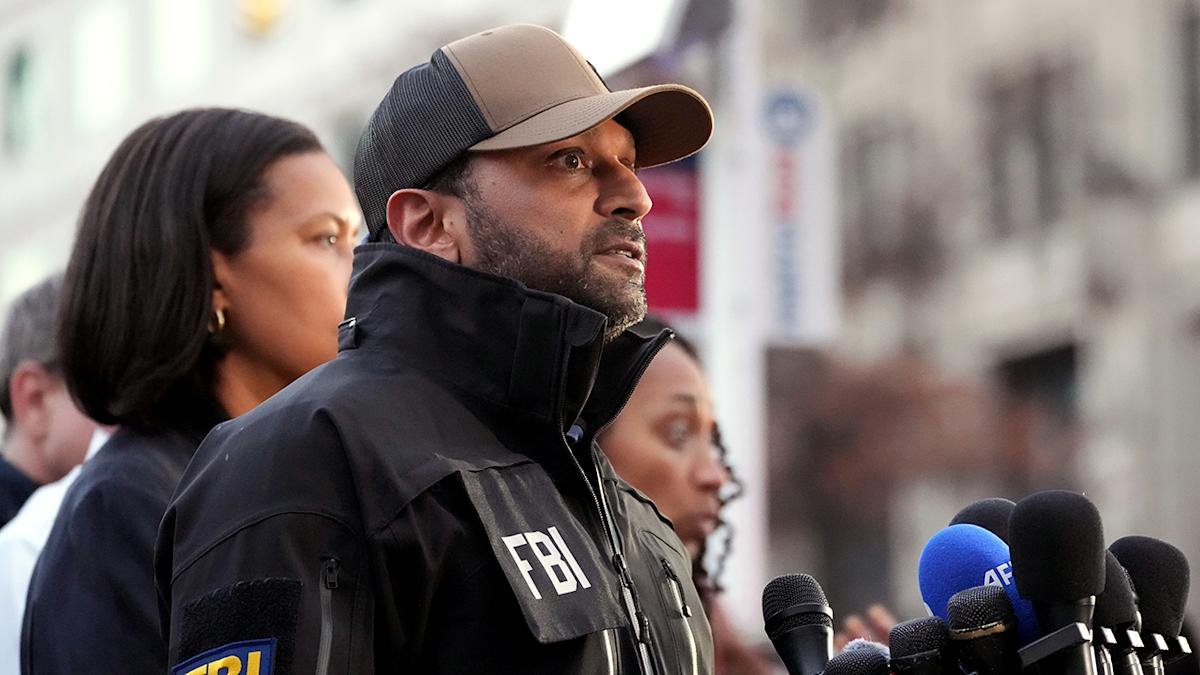
The U.S. Department of Justice (DOJ) is facing growing scrutiny and embarrassment after a string of high-profile failures tied to attempts to prosecute critics of President Donald Trump. What was meant to project strength and accountability has instead exposed deep cracks in federal prosecution strategy, according to legal experts and former prosecutors.
In a sequence of setbacks rarely seen in modern federal law enforcement, the DOJ has suffered dismissed indictments, blocked evidence, and, most strikingly, two federal grand juries refusing to indict one of its key targets — New York Attorney General Letitia James.
The most damaging blow came on December 11, when a second grand jury declined to issue charges against James, just days after another grand jury rejected the same effort. Her attorney, Abbe Lowell, called the outcome “unprecedented,” a sentiment echoed by multiple former federal prosecutors.

Earlier indictments against both James and former FBI Director James Comey were thrown out after a federal judge ruled that the special prosecutor who brought the cases, Lindsey Halligan, had been unlawfully appointed. Adding to the DOJ’s woes, a judge also blocked prosecutors from using key evidence against Comey, citing possible constitutional violations.
“This is an embarrassment,” said Neama Rahmani, a former federal prosecutor. “The last thing you want to be as a prosecutor is to be on the defensive — and that’s exactly what’s happening here.”
Trump’s Longstanding Vendettas
Trump’s hostility toward both Comey and James dates back years. He fired Comey in 2017 while the FBI was investigating potential links between Trump’s 2016 campaign and Russia. James later sued Trump in 2022 for civil fraud related to his real estate business, a case that deeply angered the former president.
In a September 20 social media post, Trump openly called for the prosecution of Comey, James, and Sen. Adam Schiff of California. While investigations were launched, results have been deeply underwhelming.
An NBC News report revealed that the DOJ’s investigation into Schiff has stalled entirely, with internal probes reportedly underway to examine how the case was mishandled. The DOJ has declined to comment on its performance in these matters.
Loyalty Over Experience
According to multiple reports, career prosecutors — including the interim U.S. attorney for the Eastern District of Virginia — had previously concluded the evidence against James and Comey was too weak to sustain charges. Trump publicly criticized and fired the U.S. attorney, later urging Attorney General Pam Bondi to appoint Lindsey Halligan, his former personal lawyer, despite her lack of prosecutorial experience.
Bondi acted swiftly, and Halligan secured indictments against both Comey and James. But the cases quickly collapsed.
In Comey’s case, Magistrate Judge William Fitzpatrick described a “disturbing pattern of profound investigative missteps,” including possible violations of the Fourth Amendment. Judge Cameron McGowan Currie, a Clinton appointee, ultimately dismissed all charges after ruling Halligan’s appointment unlawful.
“The prosecutions haven’t amounted to much in court,” said Carl Tobias, a law professor at the University of Richmond. “Except to harass them — which may have been the point.”
Grand Jury Rejections: A Rare Humiliation
Perhaps the most humiliating moment for the DOJ came when two separate grand juries rejected efforts to re-indict Letitia James. Legal experts stress how extraordinary this is.
Former federal prosecutor Mitchell Epner said he sought hundreds of indictments in his career and failed only once. “To go before two grand juries in a week and fail both times is humiliating and a repudiation of the prosecution,” he said.
Barbara McQuade, former U.S. attorney under President Barack Obama, was even more blunt:
“When prosecutors are selected based on loyalty rather than experience and integrity, this is the sort of garbage we can expect.”
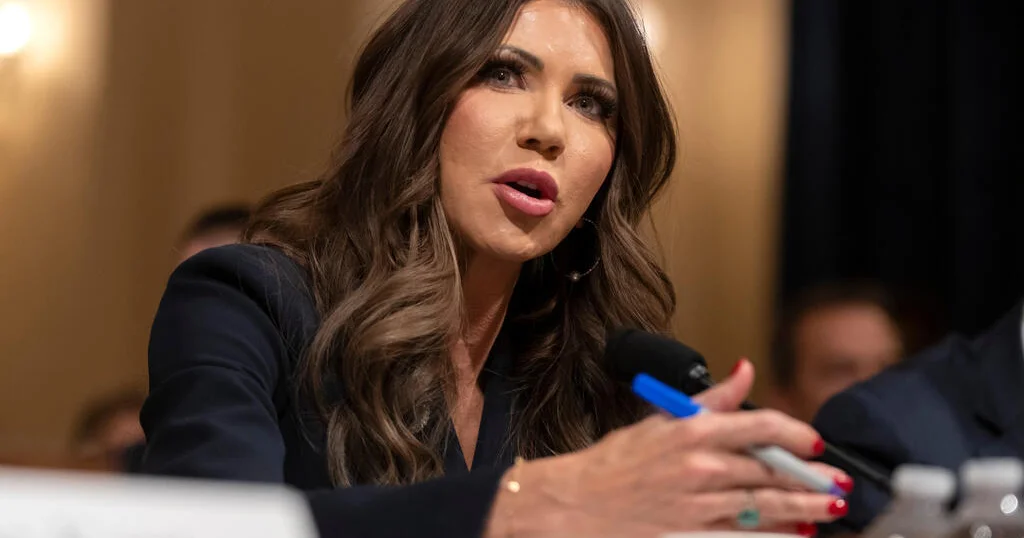
Comey Case Still on Shaky Ground
The DOJ has suggested it may try to re-indict Comey, but significant hurdles remain. A federal judge has temporarily blocked prosecutors from using key evidence obtained during a separate 2017 investigation, ruling it may have been seized unconstitutionally.
Even if that hurdle is cleared, prosecutors face another problem: time. The original indictment was issued just days before the statute of limitations expired. Comey’s defense team argues that because the indictment was void, the government cannot rely on the usual six-month extension for refiling charges.
“The DOJ — and Halligan in particular — have egg on their face,” Rahmani said. “These are massive failures by the Justice Department.”
A Pattern of Collapse
What emerges from this saga is not just a legal defeat, but a broader institutional reckoning. From judicial rebukes to grand jury resistance, the DOJ’s efforts against Trump’s perceived enemies have collapsed under scrutiny.
Instead of delivering accountability, the prosecutions have raised uncomfortable questions about politicization, competence, and abuse of power — questions that now hang heavily over the Justice Department itself.
Politics
Bill Maher Sparks Fiery Clash With Ana Kasparian on Israel as Question About ‘That Dress’ Escalates Debate
“Where would you live in the Middle East… in that dress?” Bill Maher’s question turns tense as Ana Kasparian pushes back on his assumptions.
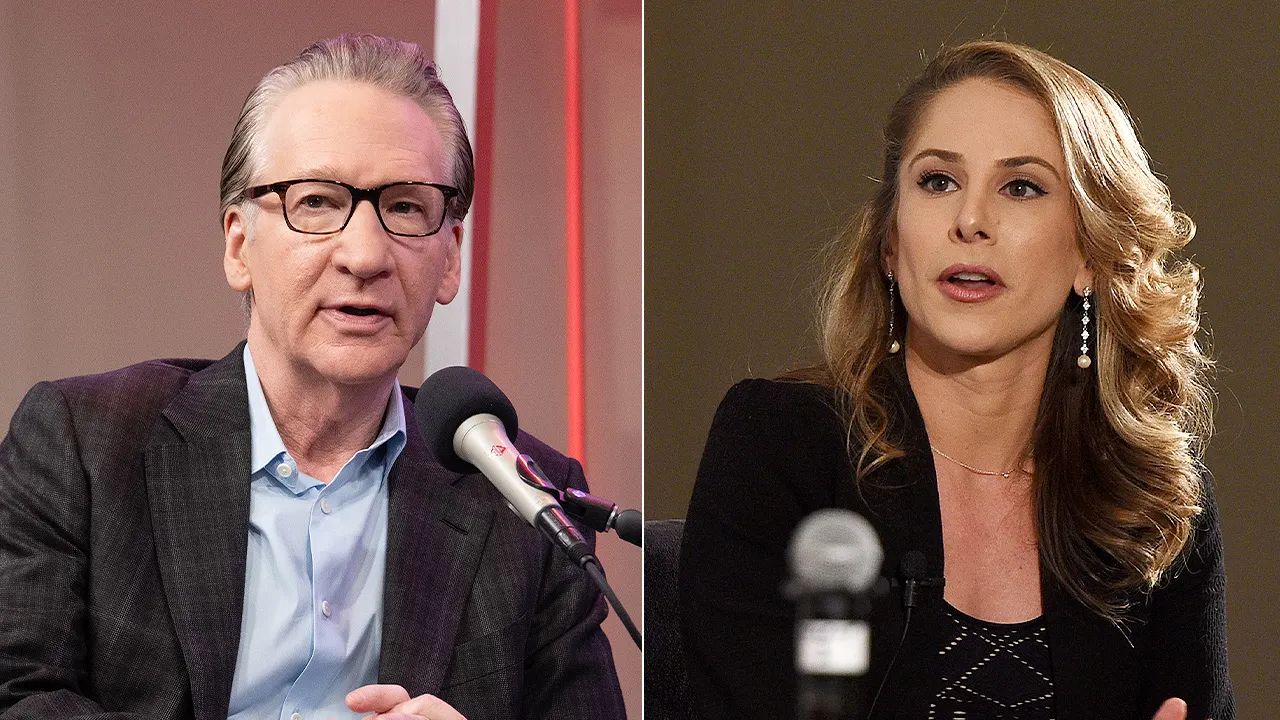
A casual, free-flowing podcast conversation quickly morphed into a heated geopolitical debate when comedian and commentator Bill Maher clashed with Ana Kasparian of The Young Turks during her recent appearance on his show, Club Random.
What began as a typical Maher-style discussion — part politics, part humor, part provocation — took a sharper turn when the topic shifted to the Middle East and whether a Western woman would feel comfortable living there.
Maher, who often stresses that he is not formally aligned with any political organization, posed a hypothetical question to Kasparian:
“Ana, you’ve got to go live in the Middle East… where would you live?”
He began listing countries one by one — Pakistan, Egypt, Jordan, Lebanon, Syria — adding commentary that blended sarcasm with dark humor. Kasparian immediately challenged his characterization of Syria, pointing out that parts of the country are still controlled by extremist groups.
ALSO READ : Kylie Jenner and Timothée Chalamet Steal the Spotlight in Matching Orange Looks at Marty Supreme Premiere
But Maher barreled on, even referencing Yemen “under Houthi rule,” before pivoting to Israel.
“Tel Aviv or the West Bank — Ramallah is wonderful in the fall, it gets lovely,” Maher said. What followed, however, pushed the discussion into far more personal territory.
Looking directly at Kasparian’s outfit, Maher asked:
“What city would you live in? What do you think you’d be comfortable in that dress?”
The remark noticeably shifted the tone of the conversation. Kasparian, known for her direct style on The Young Turks, pushed back firmly, suggesting Maher was oversimplifying deeply complex cultures and ignoring regional differences in laws, norms and women’s rights.
Maher defended his approach, insisting he was speaking about general realities in the region, not making personal judgments. But by this point, the exchange had clearly escalated beyond a casual hypothetical.
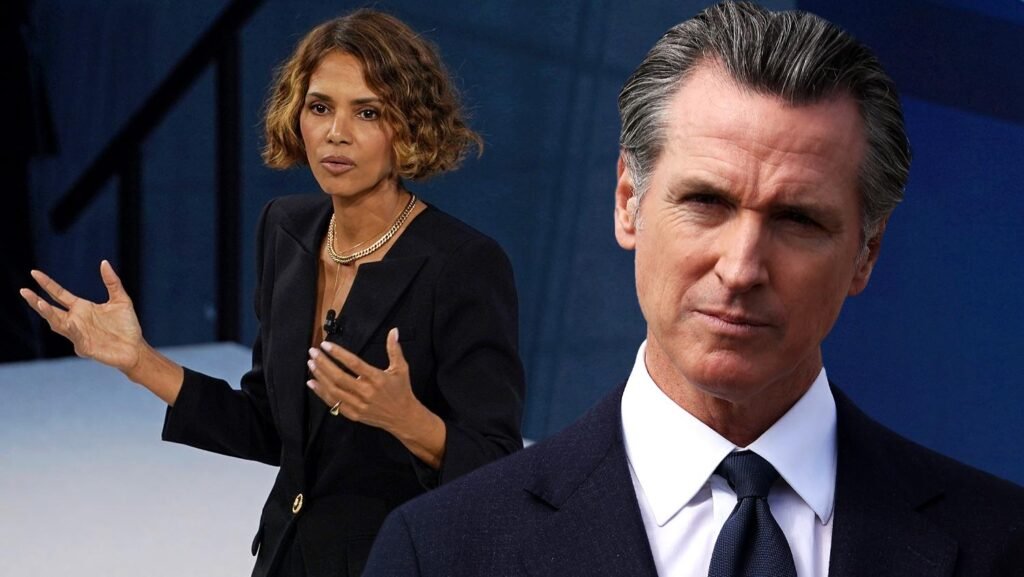
A Debate That Mirrors a Larger Global Divide
The tense moment reflected a broader, ongoing debate playing out across social media and political circles: How does the West talk about the Middle East without flattening its complexity?
Kasparian argued that sweeping generalizations — especially about women’s freedoms — feed into stereotypes that oversimplify lived experiences. Maher countered that refusing to acknowledge differences in legal and cultural realities is equally misleading.
As clips of the exchange circulated online, reactions were predictably polarized. Supporters of Maher praised him for “saying the uncomfortable truth,” while fans of Kasparian applauded her for challenging what they viewed as reductive framing.
Why This Exchange Matters
Both Maher and Kasparian command large online audiences. Maher hosts the long-running HBO show Real Time with Bill Maher, while Kasparian reaches millions through TYT’s digital platforms. Their confrontation — part humor, part philosophy, part geopolitics — reflects how discussions about Israel, women’s rights, and Middle Eastern politics have become flashpoints in Western media.
It also highlights something deeper: When conversations about geopolitics intersect with identity and personal appearance, the tension is almost inevitable.
And on Club Random, tension is something Maher rarely shies away from.
Politics
“If I Can’t Beat Jimmy Kimmel, I Shouldn’t Be President…” Trump Drops Bold Claim Ahead of Hosting Kennedy Center Honors
At a pre-event gathering, President Donald Trump predicted record-breaking ratings — and took a sharp swipe at late-night host Jimmy Kimmel.
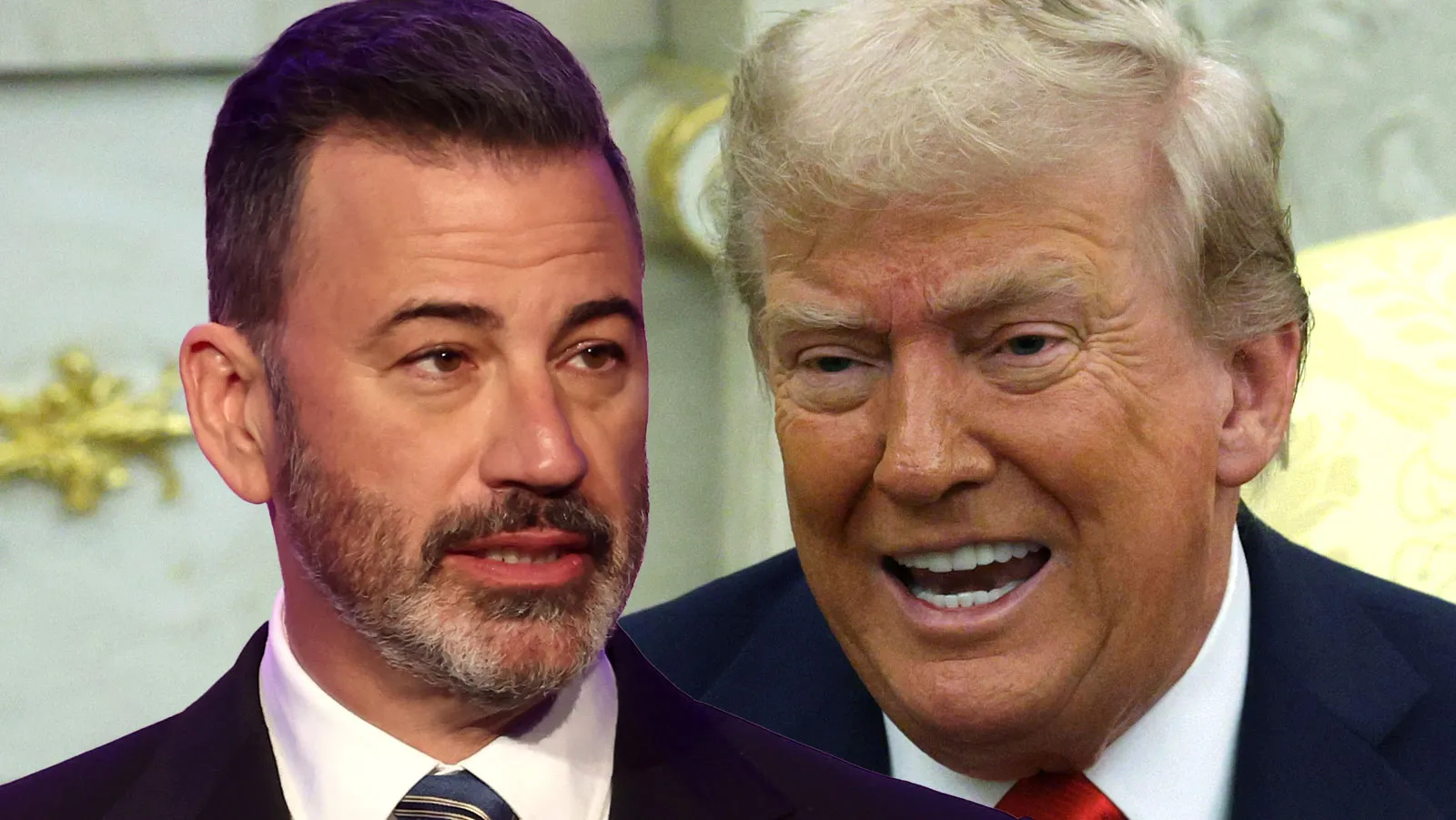
On the eve of hosting the prestigious Kennedy Center Honors, Donald Trump did what he often does best — make headlines before the event even begins. Speaking confidently at a pre-show gathering, Trump made several bold predictions about the upcoming ceremony, including one that instantly went viral.
“I believe this will be the highest-rated show they’ve ever done,” he told attendees, referring to the televised broadcast that will air later this month on CBS and Paramount+. With characteristic bravado, Trump added that while the awards have seen strong viewership in the past, “there’s nothing like what’s gonna happen tomorrow night.”
But it wasn’t his ratings prediction that raised eyebrows — it was his jab at late-night host Jimmy Kimmel.
“I’ve watched some of the people that host,” Trump said with a smirk. “Jimmy Kimmel was horrible. And if I can’t beat out Jimmy Kimmel in terms of talent, then I don’t think I should be president.”
ALSO READ : “Treylon Burks Stuns NFL With Gravity-Defying One-Handed TD… Fans Say ‘This Is His Odell Moment’”
Those in the room reacted with a mixture of laughter and surprise. Trump, who has a long-running feud with several late-night comedians, seemed to relish the moment. Though Kimmel has never actually hosted the Kennedy Center Honors, he did appear in the 2012 ceremony during a tribute to David Letterman — a detail Trump apparently glossed over.
Kimmel, meanwhile, has hosted the Academy Awards, the Primetime Emmys, and fronts his long-running late-night show Jimmy Kimmel Live! Yet Trump’s comment implied he expected comparisons to be inevitable — and not necessarily favorable from the mainstream press.

“We never had a president hosting the awards before,” Trump reminded the audience. “This is a first. I’m sure they’ll give me great reviews, right? They’ll say, ‘He was horrible. He was terrible.’ No, we’ll do fine.”
His tone shifted briefly toward sincerity as he thanked the attendees and spoke about the emotional weight of the upcoming evening.
“This is a special night,” he said. “By the end of these two days, you’re gonna say this is one of the most special days in your life.”
But even in the sentimentality, Trump couldn’t resist one more prediction — that several guests had already told him the day felt life-changing.
With Trump’s boldness, the anticipation around the Honors ceremony is higher than ever — not only for the performances, but to see just how the president’s first hosting attempt will unfold on stage. One thing is certain: the broadcast won’t lack drama, humor, or spectacle.
-

 US News6 days ago
US News6 days ago“She Never Made It Out…” Albany House Fire Claims Woman’s Life as Family Pleads for Help to Bring Her Home
-

 Entertainment1 week ago
Entertainment1 week ago“Detective, Psychologist, Anthropologist?” — Inside the Secret World of Casting Directors Behind ‘F1,’ ‘The Smashing Machine’ and ‘Marty Supreme’
-

 Entertainment5 days ago
Entertainment5 days agoXG Star Cocona Shares a Brave Truth at 20 — “I Was Born Female, But That Label Never Represented Who I Truly Am…”
-

 Entertainment5 days ago
Entertainment5 days agoSamba Schutte Reveals the Surprise Cameo in Pluribus That “Nobody Saw Coming”… and Why John Cena Was Perfect for the Role
-

 Entertainment1 week ago
Entertainment1 week agoLegendary Guitarist Steve Cropper Dies at 84… Tributes Pour In for the Soul Icon Behind ‘Green Onions’ and ‘Soul Man’
-

 Entertainment6 days ago
Entertainment6 days agoNika & Madison stuns global audiences as director Eva Thomas reveals why “resilience, not fear, drives Indigenous women on the run”
-

 Politics4 days ago
Politics4 days ago“Billions and Billions Have Watched Them…” Trump Makes History Hosting Kennedy Center Honors and Praising Stallone, Kiss, and More
-
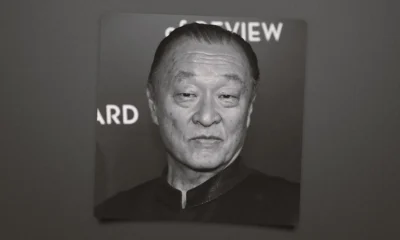
 Entertainment1 week ago
Entertainment1 week agoHollywood Mourns as Cary-Hiroyuki Tagawa Passes Away at 75… Fans Say “Shang Tsung Lives Forever”


